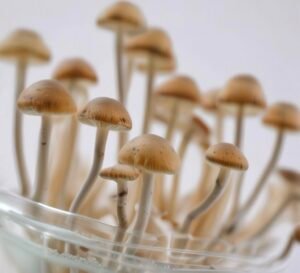Blog
The Role of Psychedelics as Therapy
Introduction
In recent years, psychedelic therapy has gained significant traction. Researchers and clinicians are investigating the potential of psychedelic drugs therapy in treating various mental health disorders. There are now many online resources for booking your own trip so to speak.
These professionals are usually trained to understand how to guide you through your trip in a healing and safe way. With many practitioners and therapists enduring a trip of their own to be fully certified in psychedelic therapeutics.
The Science Behind Psychedelics
Psychedelics, such as psilocybin (found in magic mushrooms) and ecstasy , have shown promise in clinical trials. For treating conditions like depression, anxiety, PTSD, and substance use disorders. Recent studies suggest these substances can facilitate profound psychological insights, often leading to significant shifts in mood and perspective.
Understanding Psychedelics
What Are Psychedelics?
- Natural and synthetic substances
- These can alter consciousness and perception
- They have potential therapeutic benefits
Benefits of Psychedelic Drugs Therapy
The benefits of these psychedelic therapies show results in a significant reduction in anxiety symptoms. This has been a focal point of extensive research in recent years. These therapies, often involving magic mushrooms, ecstasy , or ayahuasca, have shown promising results in clinical trials.
One main reason psychedelic therapies work well for anxiety is that they change how people perceive things. During sessions, patients often report experiences of deep introspection, heightened emotional awareness. This altered state can facilitate the processing of unresolved trauma or negative thought patterns that contribute to anxiety.
Psychedelics are thought to improve brain function. This helps the brain reorganize by forming new connections. These changes can influence thinking and emotional control. In therapy, when people face their anxieties, they may find new ways to cope.
This can help to relieve and reduce the intensity of their symptoms.
Furthermore, these therapies often occur in a supportive place. While guided by trained therapists who provide a safe space for healing.
The bound that is formed between the patient and therapist can enhance the effectiveness of the treatment. Thus people feel more secure in confronting difficult emotions and experiences.
Furthermore, the decrease in anxiety symptoms is not only about quick relief. Many study participants have shared that they feel better long after therapy sessions end. This lasting effect suggests that psychedelic therapies might be a good option compared to traditional treatments. Traditional methods, like cognitive-behavioral therapy (CBT), do not always work well for every patient.
Clinical Outcomes
- Reduction in anxiety symptoms
- Long-lasting impact after sessions
- Improvement in emotional well-being
Patient Experience
- Enhanced introspection and insight
- Increased openness and vulnerability
- Supportive therapeutic settings
Public Perception and Acceptance
- Education about therapeutic benefits
- Addressing stigma around psychedelics
- Promoting informed discussions in communities
Psychedelic medicine: The way of the future.
The future of psychedelics as a therapeutic tool in mental health treatment is an area of growing interest. Positively showing significant promise for addressing various psychological conditions.
Classical psychedelics historically have been stigmatized and are often associated with drug use. But now psychedelics are being re-evaluated within clinical settings, supported by an expanding body of scientific evidence that highlights their potential benefits.
Recent studies have demonstrated that psychedelics, such as psilocybin (the active compound in magic mushrooms),and MDMA can facilitate profound psychological healing. These substances promote brain activity, which is the brain’s ability to reorganize itself by forming new neural connections. This characteristic may help individuals recover from traumatic experiences, depression, anxiety, and other mental health disorders.
Psychedelic Research.
Research conducted by institutions like Johns Hopkins University. In addition the Multidisciplinary Association for Psychedelic Studies (MAPS) has shown that psychedelics can produce significant and lasting improvements in mental health outcomes.
For example, studies with psilocybin have indicated that it can lead to substantial reductions in depression and anxiety. Especially in terminally ill patients. This leading to acceptance and peace in the face of mortality. A smile on the way out.
Similarly, MDMA has been investigated as a treatment for PTSD. Showing promising results in helping process traumatic memories and emotions.
Psychedelics as Therapy
Mechanisms of Action
- Promote brain function
- Alter brain connective patterns
- Promote emotional release
Types of Therapeutic Psychedelics
- Psilocybin for depression, anxiety and eating disorders
- MDMA for Post Traumatic Stress Disorder
- Ayahuasca for addiction
Psychadelic therapy often involves a guided experience under the supervision a trained professional. Thus allowing patients to explore their inner thoughts and feelings in a safe and supportive environment.
This process can lead to enhanced emotional release, greater self-awareness, and a shift in perspective that facilitates healing. Moreover, adding these experiences into patients’ daily lives is a crucial part of the therapeutic process. This is because it helps solidify the insights gained during psychedelic sessions.
Challenges in Psychedelic Therapy
Regulatory Hurdles
- Legal status of psychedelic substances
- Barriers to research funding
- Need for clinical guidelines
Safety and Ethical Concerns
- Potential for abuse or misuse
- Need for trained professionals
- Informed consent and patient protection
As research continues to unfold, regulatory frameworks are also evolving. Several countries and states are beginning to recognize the therapeutic potential of psychedelics. Furthermore, this movement is leading to discussions about legality and medical use. The FDA has even granted “breakthrough therapy” designation to certain psychedelic treatments, expediting their development and review process.
However, the journey toward mainstream acceptance of psychedelics in mental health care is not without challenges. Although there remain concerns regarding safety, and the need for proper training for therapists providing these treatments. Assisted psychedelic trips are a potentially a great healing mechanism.
Furthermore, research is ongoing to fully understand the optimal dose of psilocybin, and long-term effects.


Pingback: Shroom Delivery of Microdose Capsules. - Magic Mushrooms Online